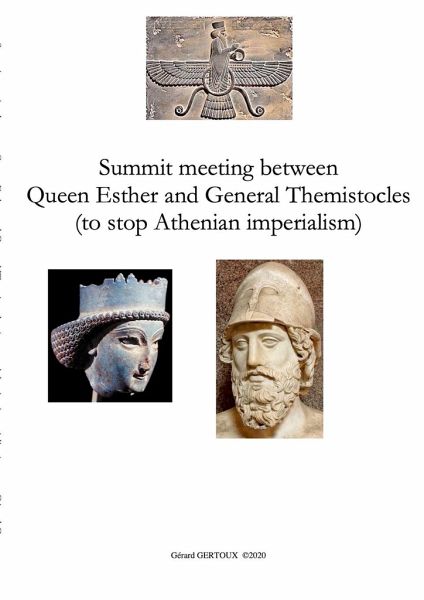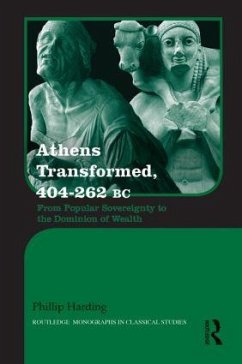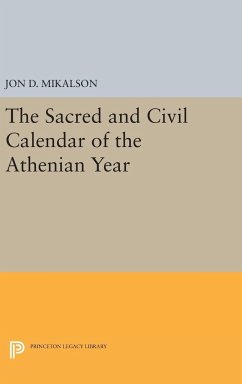
Summit meeting between Queen Esther and General Themistocles (to stop Athenian imperialism)
Versandkostenfrei!
Versandfertig in 1-2 Wochen
25,99 €
inkl. MwSt.

PAYBACK Punkte
13 °P sammeln!
The choice made by Themistocles to meet Xerxes (in 476 BCE) remains an enigma for most historians. Why did this brilliant strategist, who defeated the imperial armies of Xerxes at Salamis and was a fervent defender of a workers' democracy rather than an owners' democracy, go to Persia to make a pact with the enemy? Why did Artaxerxes (485-425), when he arrived at the imperial court in 474 BCE, welcome him as a hero, appoint him governor of Magnesia and even give him the right to mint his own currency? Why did Themistocles (536-471) want to confer with Amestris, i.e. Queen Esther (510-426), mot...
The choice made by Themistocles to meet Xerxes (in 476 BCE) remains an enigma for most historians. Why did this brilliant strategist, who defeated the imperial armies of Xerxes at Salamis and was a fervent defender of a workers' democracy rather than an owners' democracy, go to Persia to make a pact with the enemy? Why did Artaxerxes (485-425), when he arrived at the imperial court in 474 BCE, welcome him as a hero, appoint him governor of Magnesia and even give him the right to mint his own currency? Why did Themistocles (536-471) want to confer with Amestris, i.e. Queen Esther (510-426), mother of Artaxerxes I (Ne 2:6), and why did Socrates encourage his faithful follower, the strategist Alcibiades, before the Peloponnesian War began (in 431 BCE), to benefit from Amestris' wisdom? An absolute chronology of this period gives the answer to all these puzzling questions: Zoroaster (614-536), whom Socrates considered the first magus, was the diviner whom Cyrus met after the fall of Babylon (Daniel). Impressed by this "magus" who had revealed to him that God himself had appointed him to rule the world (Is 44:24-45-4), his co-regent issued an imperial decree (Dn 6:24-28) stipulating that: "From now on, the Persians are to worship the Lord Wisdom (Ahura Mazda), the only god, creator of heaven and earth, creator of man's happiness", which was the motto of all the Achaemenid kings. Themistocles, who had wanted to meet with Xerxes to secretly replace the Persian protectorate with a partnership, in order to avoid war with the imperialist Athenians, was convinced by Amestris' much wiser secret plan of a non-interventionist policy.












